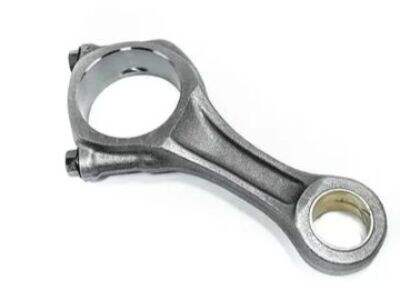You are likely to feel that something is wrong with your brakes if you drive for a long time. Perhaps, they start producing weird noises whenever you apply them or you feel your car doesn't stop like it used to. All these come under brake problems and can become very dangerous if not treated as such. This guide is going to talk about how you can identify the point at which you need to change your brakes and why you should not ignore such signs.
Identifying Brake Problems
You need to observe some signs that will indicate to you whether your brakes require some attention. The first sign is if you start hearing a grinding or squealing noise coming from your brakes. If you can hear these noises, then your brake pads are probably worn out and need to be replaced. Check the Brake Pads The "stop" part in your vehicle is the brake pads. Another sign would be that the brake pedal is soft or spongy when pressed. Don't Ignore the Signs
It is important that once you notice these signs, you must not ignore the signs of brake problems anymore.
For example, you continue driving a car with the problem of culminating a leak, the longer it is allowed to exist the more there is to mend. And this is what leads to a crash, and none of us would want that! Therefore, if your brake pads are completely worn out, then your brakes might not work at all. This is dangerous depending on the speed and much more so in heavy traffic where you must come to a halt very fast. The recognition of these signs is an important step that you can take to ensure your safety as well as those of others on the road are protected. Maintenance Log
This way of tracking a brake maintenance log would make it easy to monitor how far you are from taking it in for service.
On this log, you date it. You write down what happened during your inspection, and other information the mechanic may give you. With a piece of paper, you have recorded for me above, you will know better when to come in or when you are scheduled next. You can even record these checkups in the calendar beforehand even if you forget. You prevent bigger issues from coming through knowing you schedule your brake maintenance. When do You go back for a Brake Inspection:
It's highly advisable that you take your car to the shop for a brake inspection about every 12,000 miles.
_____________
This is a good guideline to follow but you should also take your car in for service if you experience any of the warning signs we mentioned in the previous section of this article. It is when a qualified technician will check the brake pads, rotors, and calipers to make sure everything is working well. With the defects they find, they will be able to tell which one to replace. You will correct those mistakes before they become something terrible. Act Swiftly When Changing Brake Parts
If you do determine you need to replace any of your brake parts, you want to be proactive about that right away.
Just do not wait until they completely fail on you; that could be hazardous. Also, if you wait this long, it may end up costing more money and time to correct. This way you make sure that there won't be any more harm towards your car, and fast replacing of brake parts immediately you notice something bad from it will help achieve it. Conclusion
Hence, brake care contributes hugely to keeping you on safer roads. Learn to read the signs of braking issues; not ignoring warning signs, a maintenance log, getting your vehicle checked, and getting your brake parts changed without procrastination all help to keep you safe on the road along with other people.

 EN
EN
























